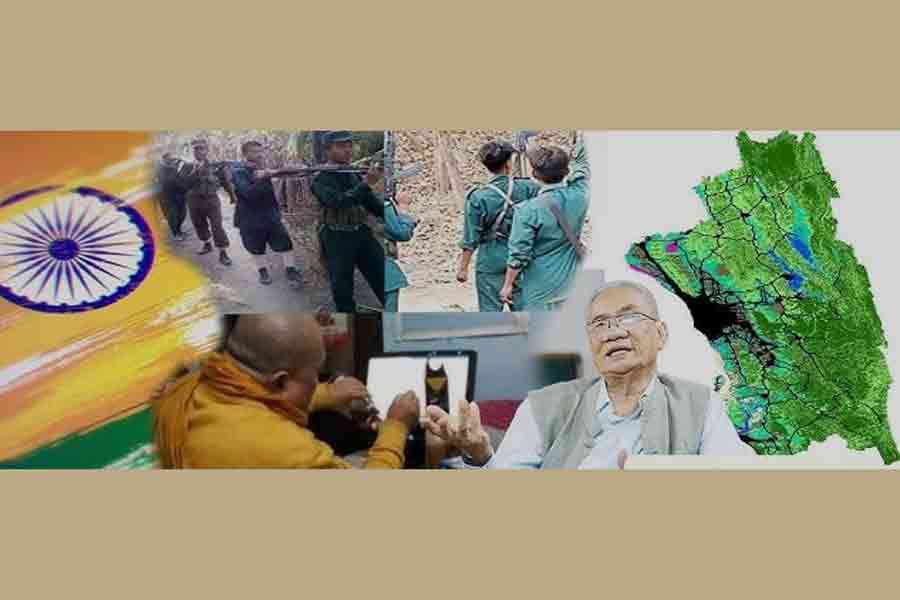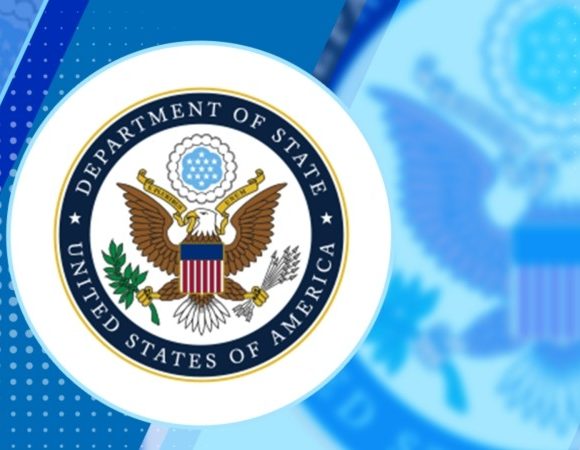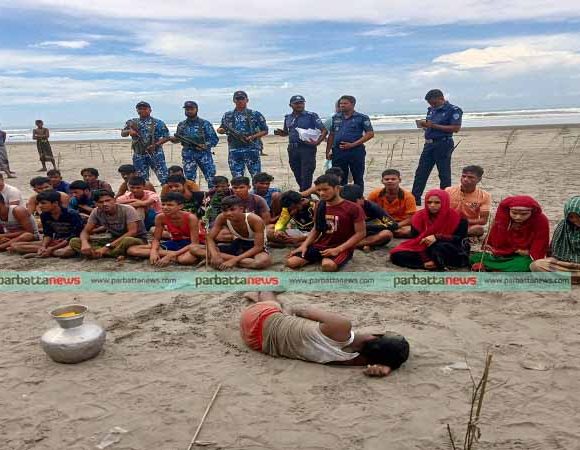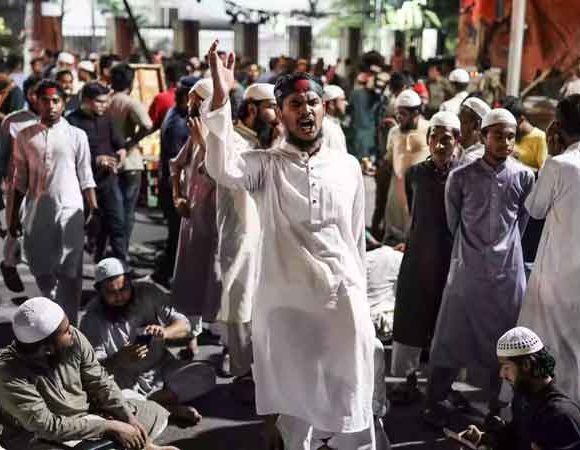Govt report alleges plot to destabilise CHT by Santu Larma, Monogeet

PARBATTA NEWS DESK
A government security report, accessed by Amar Desh, has alleged that senior leaders of the Parbatya Chattogram Jana Samhati Samiti (PCJSS), including Jyotirindra Bodhipriya Larma (Santu Larma), are involved in a coordinated plot to destabilise the Chittagong Hill Tracts (CHT), reportedly with the backing of Indian intelligence agencies.
According to the report, Karunalankar Bhante, a former vice-president of the PCJSS and a resident of Dighinala in Khagrachhari, plays a central role in this network. After the signing of the 1997 Peace Accord, Karunalankar is said to have moved to New Delhi under the supervision of Indian intelligence and assumed a new identity as Monogeet Jummu. Though the Indian government introduced him as a Buddhist monk, Monogeet has recently identified himself on social media as the self-proclaimed leader of a so-called “Jummu Land”.
Amar Desh reports that Monogeet allegedly came under the radar of Bangladeshi intelligence in 2017 when he reportedly delivered 41 grenades sourced from an Indian separatist group to JSS operatives inside the CHT. Security officials claim that visual evidence and documents linked to the transfer surfaced that same year.
The report further claims that on May 3, 2025, PCJSS chief Santu Larma travelled to India on the pretext of receiving medical treatment. However, surveillance found no record of any hospital visit. Instead, Larma allegedly stayed at Monogeet’s residence in Delhi, where several individuals suspected of involvement in armed activities in the CHT were also seen visiting. During this period, according to the report cited by Amar Desh, a new plan was developed to exploit the political changes inside Bangladesh.
Part of the plan reportedly includes reviving sentiments similar to those of the July 2024 movement. Under the supervision of Indian intelligence, a JSS faction based in India is said to be running online campaigns targeting Bangladeshi security forces and Bengali settlers in the CHT, portraying local tensions as ethnic conflict to harm the country’s image internationally.
In what is described as the second phase of the plan, the group is allegedly working to foment unrest within educational institutions. On June 26, armed JSS members reportedly entered Rangamati University, creating panic among students and staff.
The report notes that despite the passage of 27 years since the Peace Accord, sustainable peace has not been achieved. Instead, the JSS is accused of expanding its armed activities while outwardly adhering to the peace process. While the Accord stipulated the disarmament of PCJSS fighters within 45 days, the group is said to have retained and even increased its armed capacity, establishing secret bases in the hills.
Citing security sources, Amar Desh reports that the JSS has capitalised on the withdrawal of army camps to set up arms depots and training centres, often under the cover of religious institutions. Armed patrols by JSS members have allegedly been observed in Rangamati and Khagrachhari, spreading fear among local residents.
Security analysts have warned that the absence of adequate border surveillance has enabled the smuggling of arms from neighbouring India. Several documented incidents were referenced in the report: on February 12 this year, three JSS members were arrested with firearms in Lunglei, Mizoram, and on June 3, 13 others were detained in Tripura while allegedly undergoing training with separatist groups after entering India under medical pretences.
Between January and June 2024, around 700 JSS operatives reportedly received training under Indian intelligence and returned to Bangladesh, according to the same government report.
Commenting on the findings, Dr Saleh Shahriar, Assistant Professor at North South University and a specialist on CHT affairs, told Amar Desh that although multiple armed groups are active in the region, the JSS currently poses the most serious threat to national security due to its connections with India and the now-defunct Awami League.
“If India or the Awami League again seeks to destabilise Bangladesh politically, the JSS could be their most accessible tool,” Dr Shahriar said, warning that failure to act against the group’s armed activities could endanger national stability.














